Opioids Resources & Information
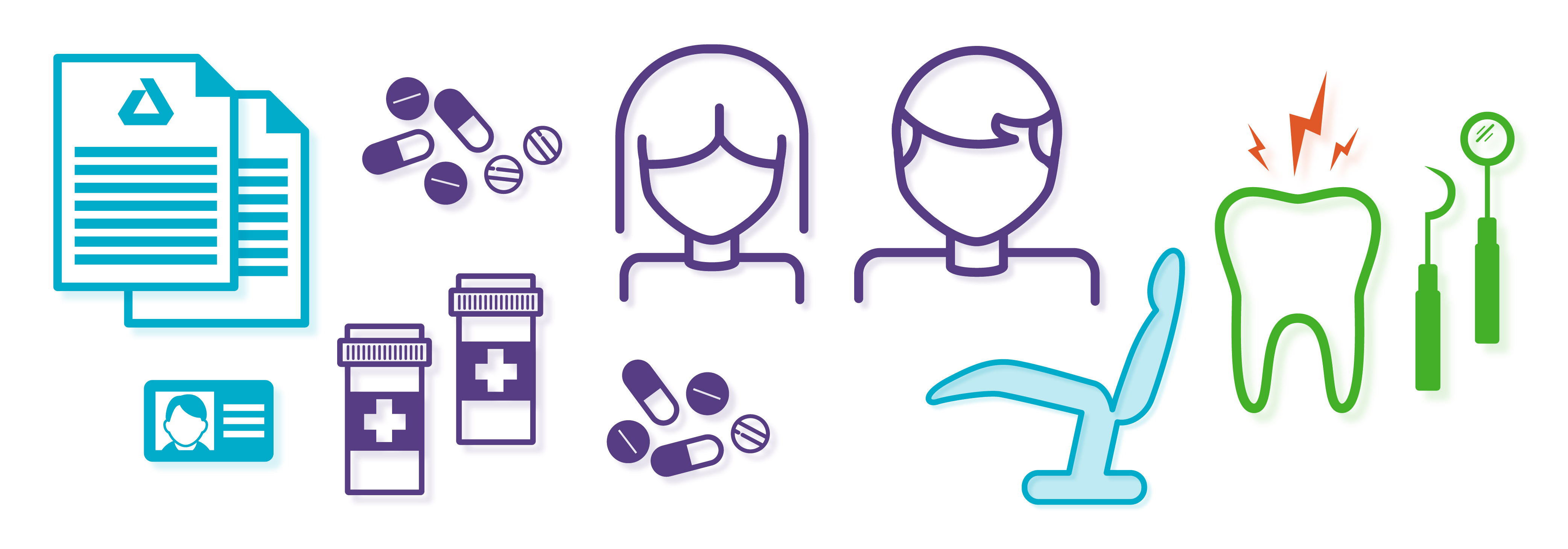
When it comes to the nation’s opioid crisis, the numbers are alarming. A staggering 75% of individuals who began abusing opioids in the 2000s reported their first opioid was a prescription drug.1
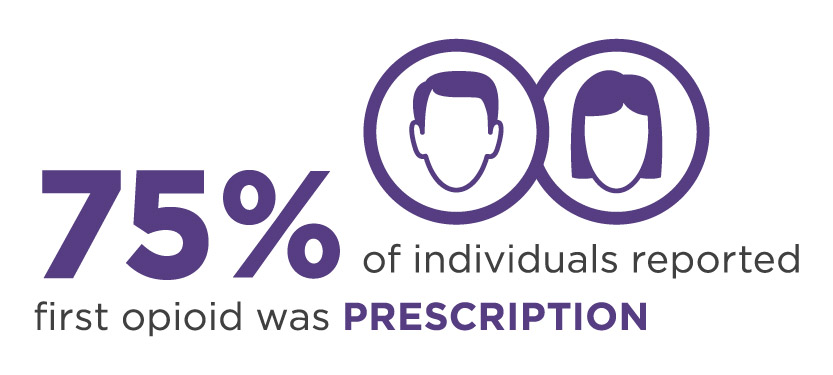
As people continue to struggle with opioid addiction, we’ve set out to help by joining forces with the Arcora Foundation, dental professionals and policy makers across the state. We believe education about dental pain management and opioids is the best approach to limiting the
devastating impacts of opioid misuse and abuse.
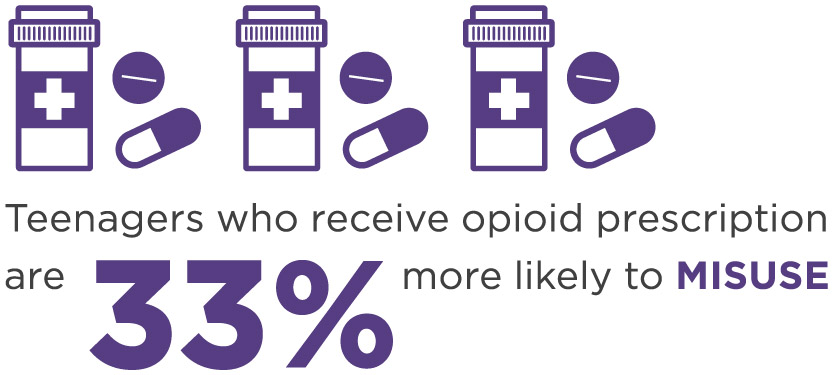
We know statistically, teenagers who receive an opioid prescription are 33% more likely to misuse opioids between the ages of 19 and 25.2 This age group is among the highest at risk and are dedicated to helping parents understand the devastating impacts of the opioid epidemic. It is common for
patients in this age group to be prescribed opioids following the extraction of wisdom teeth. The developing brain is at increased risk for addiction, so limiting opioid exposure to the shortest duration possible is very important for this age group.
Learn more about Dental Pain Management for Children and Adults
New Regulations Make an Impact on Opioid Misuse
Washington State lawmakers, employers and healthcare providers recognize that if we want to tackle the opioid crisis, we must make some serious changes. New state regulations were implemented to make a difference in this crisis.

Education for providers who prescribe opioids
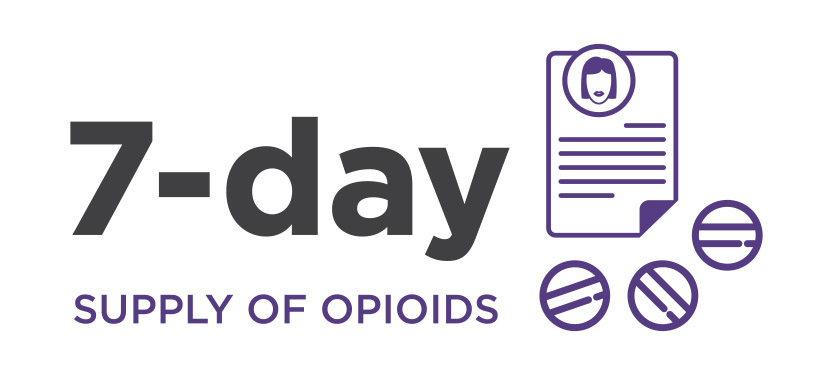
Any opioid prescription greater than a 7-day supply requires clinical documentation in the patient record to justify the need for such a quantity
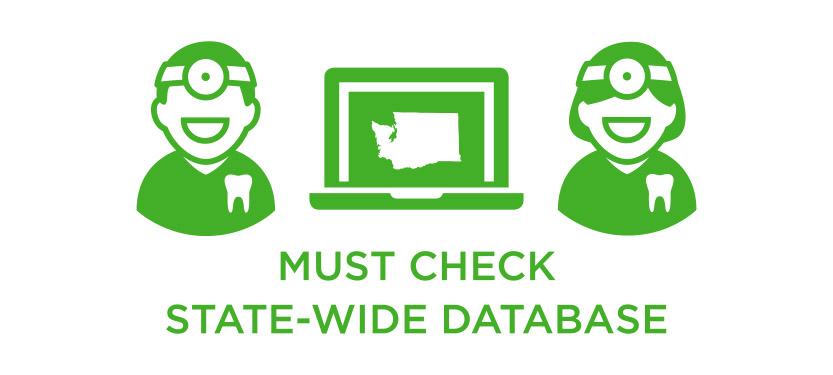
To prevent “doctor shopping,” prescribers must check a state-wide database before refilling any opioid prescription
The Role of Dentistry in the Opioid Epidemics
The dental industry plays an important role in providing pain management education and support to patients across the nation. Here are some of the ways we are partnering with dentists to help educate patients and mitigate the risks in this crisis:
- Provide 13,000+ free educational brochures about dental pain management options.
- Facilitate Opioids and Dentistry continuing dental education courses through the Arcora Foundation.
- Prioritize opioid prevention within the four Local Impact Networks across Washington state. Local Impact Networks are community led and geographically focused efforts to accelerate local transformation of oral health systems and programs.
Getting Help with Opioid Addiction
If you or someone you know becomes addicted to opioids after dental pain treatment, help is available. You don’t have to manage it alone — talk to your doctor about safely stopping. Or use one of these tools for a confidential referral to a treatment program:
- SAMHSA 24-hour National Helpline: 1-800-487-4889
- SAMHSA online treatment locator tool
- Washington Recovery Help Line: 1-866-789-1511 / 206-461-3219 (TTY)
- Directory of Certified Chemical Dependency Services
- Spokane Opioid Treatment Programs
- Medications for Opioid Use Disorder (MOUD) Locator
- Stopoverdose.org_Find Naloxone
Opioid Crisis in the News
- https://wahealthalliance.org/announcing-new-board-opioid-initiative/
- https://www.heraldnet.com/opinion/commentary-dentists-need-to-be-part-of-the-opioid-discussion/
- https://www.cnn.com/2019/05/28/health/opioid-prescriptions-teens-and-young-adults-study/index.html
- https://www.sciencedaily.com/releases/2019/05/190520081926.htm
Sources:
- National Institute on Drug Abuse. “Teen Opioid Prescriptions Raise Risk of Later Opioid Misuse.” 2015. Accessed: https://www.drugabuse.gov/news-events/latest-science/teen-opioid-prescriptions-raise-risk-later-opioid-misuse.
- Cicero TJ, Ellis MS, Surratt HL, Kurtz SP. The changing face of heroin use in the United States: a retrospective analysis of the past 50 years. JAMA Psychiatry. 2014;71(7):821-826.

